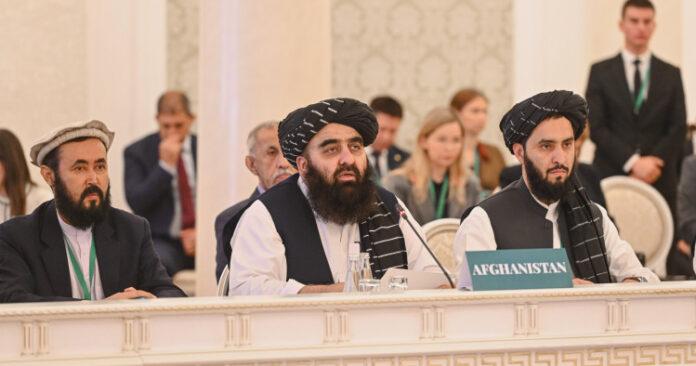
Iran’s pragmatic approach to the Afghan Taliban
Iran’s relationship with the Afghan Taliban is characterized by complexity and caution, as the two are not traditional allies. Tehran’s approach to the Taliban is influenced by numerous bilateral and regional factors, including historical animosities and disputes.
One significant source of tension is the sectarian divide, as Iran, a predominantly Shia Muslim country, has a longstanding ideological rift with the Sunni Taliban. Additionally, a longstanding dispute over water resources adds to the contentious relationship.
Despite these challenges, Iran has not adopted the hostile stance it took towards the Taliban in the 1990s; instead, it has sought to establish a more pragmatic and normalized relationship with the group since the latter’s takeover of Kabul in August 2021. Iran’s cautious approach to the Taliban’s ascent to power was rooted in its desire to see the withdrawal of US and Western forces from Afghanistan, which Tehran viewed as a potential source of regional stability. This shift in Iran’s stance toward the Taliban marks a significant departure from its previous confrontational interactions with the group. Overall, Iran’s engagement with the Taliban regime is a balancing act aimed at securing its own interests while navigating the complex geopolitical landscape of the region.
It is too early to predict the future trajectory of Iranian-Afghan relations, as the region remains volatile and prone to geopolitical rivalries and jihadist terrorism. The common threat posed by the Islamic State Khorasan Province (ISKP) could foster closer intelligence and law enforcement cooperation. Yet, ongoing border skirmishes and disputes over water-sharing continue to test the depth of Iran-Taliban ties. Domestically, Iran’s conservative and reformist factions hold differing views on long-term engagement with the Taliban. Nonetheless, the Iranian regime appears to prioritize broader geopolitical objectives over certain negative aspects of its relationship with Afghanistan. As a result, engaging with the Taliban has become a pragmatic necessity for Iran to advance its interests and maintain stability in the region
Iran’s current overtures toward the Taliban reflect its strategy of seeking alternatives to the US-dominated global order and its pragmatic approach towards achieving specific objectives in Afghanistan. While anti-US sentiment is not the primary driver of Tehran’s cautious engagement with the new Afghan government,
Iran hopes to address its own security and political concerns through this relationship. These include the growing terror threat from the Islamic State-Khorasan Province (ISKP), the critical issue of water supply to eastern Iran, and the migration of Afghan refugees. Iran’s approach has been pragmatic and aims to deepen trust with Kabul, even though it has not officially recognized the Taliban regime.
Despite allowing visits from prominent Afghan opposition leaders such as Ahmed Massoud and Ismail Khan, Iran understands that no domestic Afghan group currently poses a credible threat to the Taliban’s consolidated control. The major challenge to the Taliban, and by extension Iran, comes from ISKP, whose extremist agenda and violent attacks pose a significant threat to regional stability and security.
The ISKP’s strict interpretation of Sharia law and anti-Shia stance makes it an inveterate enemy of Tehran. The mutual threat posed by the ISKP has encouraged Iran and the Taliban to set aside their differences and collaborate on counter-terrorism efforts. Iran’s intelligence minister has publicly acknowledged cooperation with the Taliban against ISKP fighters, while Iranian parliamentarians have praised collaborative efforts that have prevented terrorist attacks.
This counter-terrorism partnership offers Iran benefits, including greater border security and opportunities for joint intelligence operations with the Taliban. Such cooperation helps Iran address internal critics of its relationship with the fundamentalist Sunni Taliban by emphasizing the importance of these efforts for national and regional security. Terrorist attacks, such as those in Kerman, have prompted calls in Iran to increase security along the Afghan border.
At a recent UN Security Council meeting, Iran highlighted the regional security risks posed by terrorism, drug trafficking, and border control deficiencies in Afghanistan. Through its pragmatic engagement with the Taliban, Iran seeks to safeguard its interests while contributing to regional stability.
Source » hstoday





